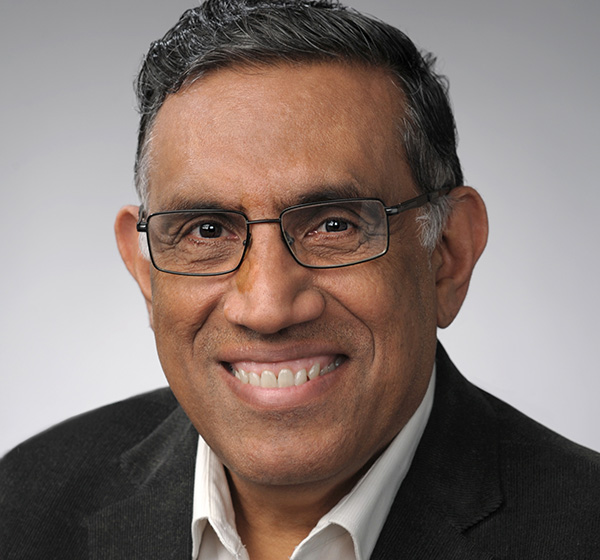
Distinguished Professor Pramod Varshney’s Sensor Fusion Lab in the College of Engineering and Computer Science along with the Center for Advanced Systems and Engineering (CASE) at Syracuse University, is collaborating with the multinational Thales company to develop new tools and techniques for monitoring air space and tracking of small unmanned aircraft systems (UAS), commonly referred to as “drones”.
Drones, are becoming increasingly important in our daily lives in order to quickly and safely deliver essential goods and better serve populations. As the world faces new challenges, these types of capabilities provide alternative access with reduced physical touch points, which is particularly important in the context of COVID-19. Varshney says this collaboration is critical to the advancement of drone integration into the national airspace system and integral to multiple, on-going integration projects including the U.S. Air Force Research Lab’s Collaborative Low-Altitude UAS Integration Effort (CLUE) and for the New York UAS Corridor—a project taking place in close proximity to Syracuse University to integrate drones into the airspace safely between Syracuse, NY, and the FAA’s UAS Test Site at the Griffiss International Airport located in Rome, NY.
Dr.Varshney’s lab is developing performance metrics and models for new radar systems being deployed ensuring that traditional aviators and drones do not get too close in the air, thereby creating a safety issue within the national airspace system. Varshney and his students are working with Thales engineers and business leaders to implement algorithms that will more accurately track drones using multiple sensors (radar, acoustic, radio frequency and cameras) to provide real-time tracking ensuring safety in the air and on the ground. Surveillance data fusion is a core competency at Syracuse University which led to the partnership between Thales and Varshney—a recognized, world-renowned expert in multi-sensor data fusion algorithmic development.
Thales, a global company with more than 80,000 employees developing and delivering solutions for aerospace, space, ground transportation, defense and digital identity and e-security, has a long-standing commitment to university partnerships.
“While the company possesses world-class engineering and development professionals, business leaders within the company recognize the importance of academic partnerships to rapidly advance technologies and concepts, and develop the next generation workforce who will revolutionize business practices and technology advancement,” said Varshney.
As a large systems integrator, Thales helped define the standard for UAS airspace integration and traffic management models – specifically as an early partner with the FAA for Low Altitude Authorization and Notification Capability (LAANC). The company’s integration of third party capabilities, such as surveillance and other data services into a UTM platform, is enabling new digital services for UAS airspace access. Varshney says Syracuse University plays a vital role in the integration of this safety-critical service.
“Central New York is leading the United States in the integration of drone technology. Syracuse University and the school’s Autonomous Systems Policy Institute along with other organizations including CenterState CEO and NUAIR and Thales are committed to establishing a leadership role in the development of critical technologies, policies and new public-private business models to advance the United States’ national airspace system,” said Varshney.
